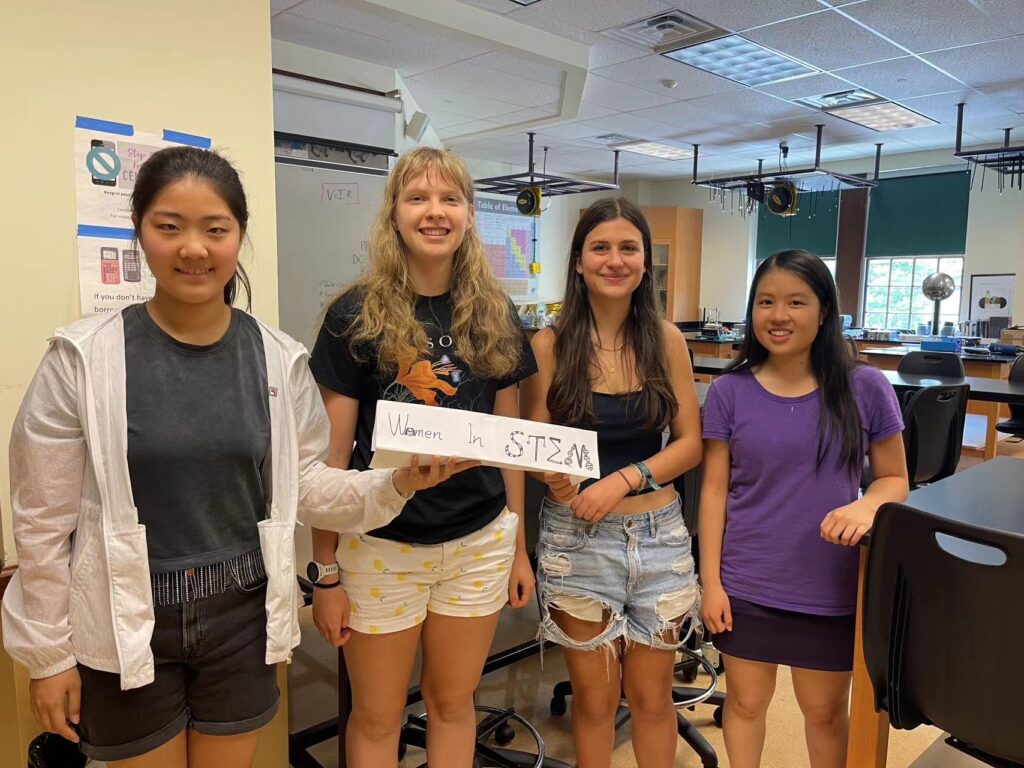Marie Curie- a Case Study
Marie Skłodowska Curie, one of the world’s most celebrated scientists, shattered the glass ceiling of the male-dominated scientific world and proved that women can be true scientists through their own achievements. She studied at the Sorbonne, won the Nobel Prize in Physics and Chemistry, traveled the world as a celebrated scientist, and became the first female professor at the University of Paris. Her life story is one of brilliance and accomplishment, and today she might be one of the most famous scientists in history. However, despite her incredible achievements, she was held back by gender bias.
Many of Curie’s life choices were impacted by her being a woman. Women weren’t allowed to attend university in her native Poland, and so Marie was forced to leave home to study at the Sorbonne in Paris. As a young scientist, Curie faced unimaginable obstacles. She had trouble obtaining a laboratory and income as a scientist. Despite the prejudice and discrimination, she faced, she was determined to be a true scientist.
Marie married Pierre Curie, a fellow scientist in 1895. Unlike many men at the time, Pierre supported Marie in her science, vouched for her, and shared his lab. Marie was able to take advantage of the respect her husband received to publicize her discoveries.
The Curies were brilliant researchers and discovered radium and radioactivity. However, Marie did not receive her share of credit. After their discovery, Pierre was invited to speak at the Royal Institution in London, but Marie was not allowed. In 1903, the Curies won a Nobel Prize in Physics. Despite the fact that Marie was as equal a contributor to the research as Pierre, it was only the advocacy of powerful male scientists that led to her receiving the prize. After they won, Pierre was offered positions at multiple prestigious universities, but due to her gender Marie was not.
It wasn’t until her husband’s tragic death, that Marie was offered an academic position that matched her accomplishments, and that was only because the University of Paris let Marie take over Pierre’s position. That led to her being the first female professor there. Even then, Marie still did not have access to the full scientific community. She was not admitted to the French Academy of Sciences and had to research on her own. In 1911 Marie Curie won her second Nobel Prize for isolating radium, becoming the first person to win two Nobel Prizes.
Despite her incredible accomplishments, the media attention Marie Curie received was always based on her gender. Articles focused on her role as a mother and drummed up scandals about her romantic relationships. The fact that she was foreign compounded the discrimination she faced, a problem that persists today.
If Marie had the same opportunities and environments that male scientists had at the time, who knows what extraordinary scientific accomplishments she could achieve? Marie was lucky because she had the support of Pierre, but she shouldn’t have needed that luck. She herself was a scientist and that should have been enough.
Marie’s story is not unique to her. This injustice is a cultural norm. Throughout history, women have been excluded from educational opportunities, especially those in the sciences. Even 100 years after Marie Curie showed what’s possible, there are fewer female scientists than male scientists. Even today, stereotypes that women aren’t as scientifically inclined are prevalent. From the time they are children, females hear that they aren’t intelligent enough to be in science, and look around and see that the scientists around them are mostly men. An important study showed that girls who were asked their gender before a math test did worse on the test than girls who weren’t. These experiences stick in people’s heads and cause them to doubt their own abilities, and think of themselves as “women who are incapable of doing science.”


